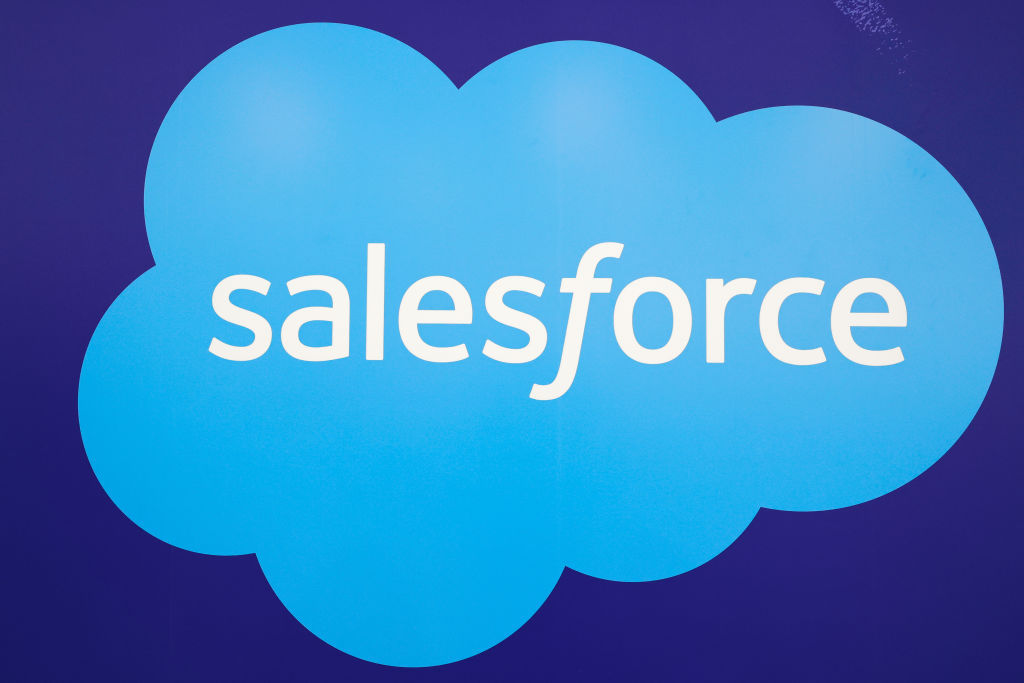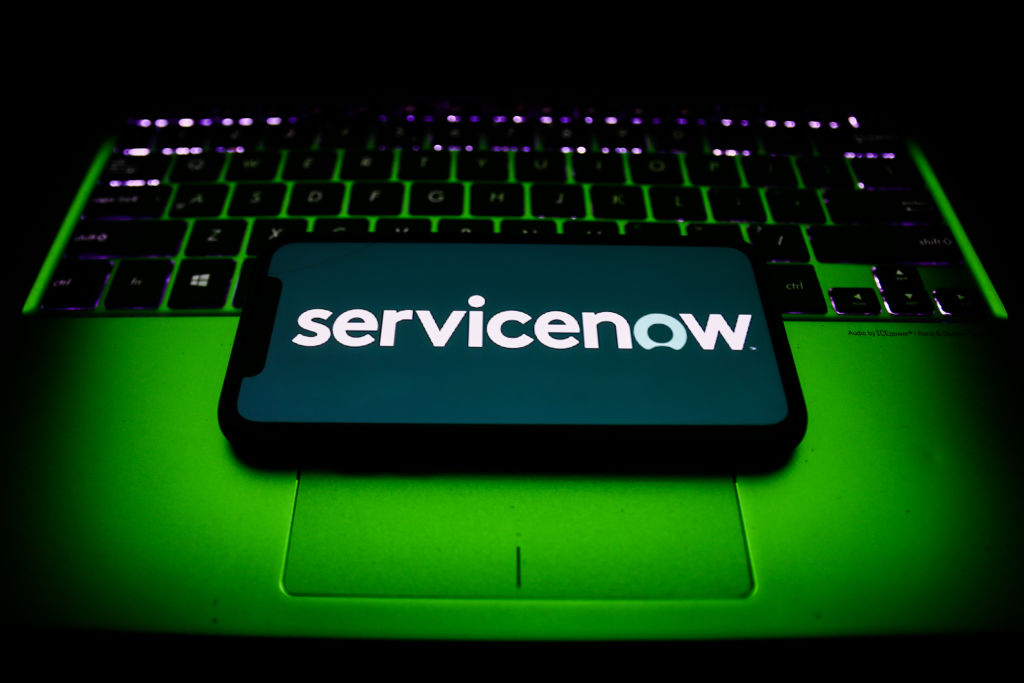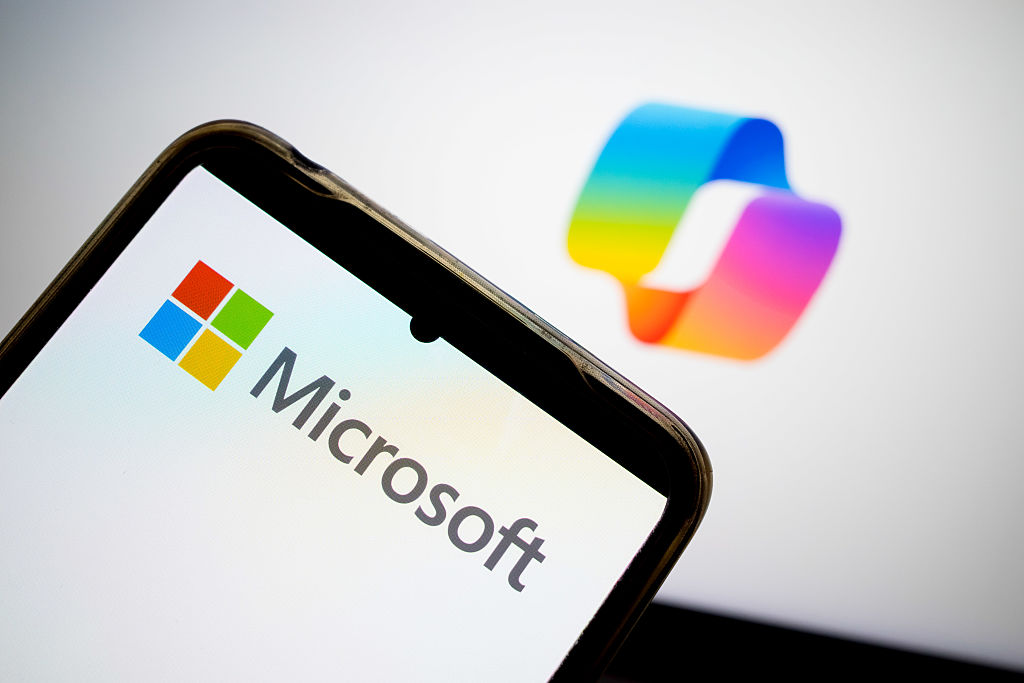Best AI Stocks to Buy: Smart Artificial Intelligence Investments
Artificial intelligence is a rapidly expanding technology. Here are the best AI stocks to buy right now.

Karee Venema

Profit and prosper with the best of Kiplinger's advice on investing, taxes, retirement, personal finance and much more. Delivered daily. Enter your email in the box and click Sign Me Up.
You are now subscribed
Your newsletter sign-up was successful
Want to add more newsletters?

Delivered daily
Kiplinger Today
Profit and prosper with the best of Kiplinger's advice on investing, taxes, retirement, personal finance and much more delivered daily. Smart money moves start here.

Sent five days a week
Kiplinger A Step Ahead
Get practical help to make better financial decisions in your everyday life, from spending to savings on top deals.

Delivered daily
Kiplinger Closing Bell
Get today's biggest financial and investing headlines delivered to your inbox every day the U.S. stock market is open.

Sent twice a week
Kiplinger Adviser Intel
Financial pros across the country share best practices and fresh tactics to preserve and grow your wealth.

Delivered weekly
Kiplinger Tax Tips
Trim your federal and state tax bills with practical tax-planning and tax-cutting strategies.

Sent twice a week
Kiplinger Retirement Tips
Your twice-a-week guide to planning and enjoying a financially secure and richly rewarding retirement

Sent bimonthly.
Kiplinger Adviser Angle
Insights for advisers, wealth managers and other financial professionals.

Sent twice a week
Kiplinger Investing Weekly
Your twice-a-week roundup of promising stocks, funds, companies and industries you should consider, ones you should avoid, and why.

Sent weekly for six weeks
Kiplinger Invest for Retirement
Your step-by-step six-part series on how to invest for retirement, from devising a successful strategy to exactly which investments to choose.
Here's one perspective on why investors should have the best AI stocks on their radar: Amazon.com (AMZN) CEO Andy Jassy recently called artificial intelligence "the most significant technological transformation since the internet."
Jassy highlighted its sweeping potential to reshape how we live, work and interact across virtually every industry. This potential is reflected in analysts' financial estimates for the still-nascent industry.
According to IDC, global spending on AI is expected to go from $235 billion in 2024 to $630 billion by 2028, growing at a compound annual rate of nearly 30%. Generative AI alone is seeing explosive growth, forecast to account for 32% of all AI investment by 2028, up from just 17% this year.
AI adoption is accelerating across industries. McKinsey reports that 65% of organizations are now regularly using generative AI in at least one business function, nearly double the level from just 10 months earlier.
From streamlining customer service to automating coding and supercharging data analysis, AI is becoming a core part of business operations.
Of course, AI's rapid ascent isn't without challenges and risks. Accuracy remains a persistent issue – AI systems can generate incorrect or misleading information.
And training and running powerful AI models doesn't come cheap. It takes an enormous amount of electricity and relies heavily on cutting-edge chips – many of which are produced by just a handful of suppliers.
That's good for semiconductor stocks such as Nvidia (NVDA). But these kinds of dependencies can lead to major bottlenecks, whether hardware shortages or rising infrastructure costs.
Even so, the big picture is hard to ignore. For investors willing to take the long view, AI still stands out as one of the most compelling opportunities in the market today.
Here are five companies that appear especially well-positioned to ride the next wave of AI-driven growth.
Data is as of September 30. Dividend yields are calculated by annualizing the most recent payout and dividing by the share price.

Salesforce
- Market value: $225.7 billion
- Dividend yield: 0.7%
In late 2024, Salesforce (CRM) launched Agentforce, a platform for building and deploying AI agents. These are sophisticated systems that operate autonomously to manage tasks like qualifying leads or resolving customer inquiries.
Agentforce has certainly seen much adoption, attracting roughly 3,000 paying customers, which span across diverse industries like manufacturing, financial services, technology, and healthcare.
"Agentforce has been able to deliver significant ROI in some initial use cases because they utilize pre-built integrations and low-code tools, which reduce implementation costs by at least 20% compared to custom-built AI systems," said Keith Kirkpatrick, a research director at Futurum.
"Based on Futurum research, along with my own conversations with Salesforce executives," Kirkpatrick writes, "it's clear that the company is actively seeking ways to reduce the initial effort to get started with agents and drive ROI quickly, as they realize that quick wins are the key to instilling confidence in an agentic platform or system."
The research firm Valoir found that Agentforce was 16 times faster than DIY approaches and accuracy increased by 75%. Consider the case with OpenTable. Within three weeks of rolling out Agentforce, the system was able to manage 73% of all restaurant queries. This was a 50% increase from its prior tool.
With more than 150,000 customers, Salesforce has many opportunities to monetize Agentforce. Evercore analyst Kirk Materne notes that "revenue should accelerate" from the first quarter to the second quarter.
Margins should expand, Materne says, "and the momentum around Agentforce should build over the fiscal year." Materne has an Outperform (or Buy) rating and a $360 12-month price target on CRM stock.

ServiceNow
- Market value: $190.9 billion
- Dividend yield: N/A
Its core technology – which is about optimizing and automating processes and workflows – is not particularly exciting. But ServiceNow (NOW) provides crucial systems for businesses that want to realize more efficiencies and lower costs across departments like IT, HR and customer service.
This technology has also proven to be a natural fit for AI. For example, ServiceNow's Now Assist platform allows IT teams to automatically detect and resolve incidents before they escalate.
In finance departments, AI helps streamline routine approvals and reconcile discrepancies with minimal human input. And HR teams benefit from AI-generated responses to common employee questions, freeing up staff for higher-value tasks.
Meanwhile, developers can accelerate software delivery using AI-assisted test generation and workflow automation.
Management's latest quarterly report highlights the traction. There are close to 1,000 customers for the Pro Plus AI suite, and average annualized contract value exceeded $200 million after a year-over-year quadrupling of total deal-count.
ServiceNow has also been investing heavily in AI agents for CRM, HR, IT and other categories such as an AI Agent Studio for building customized systems and the AI Agent Orchestrator for using teams of specialized agents.
The current economic uncertainty appears to be driving more adoption of AI solutions.
As CEO Bill McDermott said during the company's first-quarter conference call, "In all industries, we see a renewed focus on cost takeout by rooting out inefficiencies, modernizing outdated tech stacks and restoring an integrated enterprise."

Microsoft
- Market value: $3.8 trillion
- Dividend yield: 0.7%
Back in 2019, Microsoft (MSFT) CEO Satya Nadella made a bold move by investing $1 billion in OpenAI – a partnership that, at the time, raised eyebrows.
Today, it looks nothing short of visionary.
This early commitment, followed by deeper funding and technical integration, gave Microsoft a front-row seat to the generative AI revolution. It also provided a strategic boost to Azure, positioning it as the cloud of choice for a growing wave of AI-powered workloads.
Since then, Microsoft has built aggressively on that foundation.
Its AI capabilities are now deeply embedded across its product ecosystem – from cloud infrastructure and developer tools to business apps and customer service platforms.
Microsoft's Foundry is used by developers at over 70,000 companies to design, customize, and manage AI agents. And, just four months after launch, the Agent Service is already being used by more than 10,000 organizations to build and scale specialized AI agents.
GitHub Copilot has become a cornerstone of developer productivity. It's no longer just a code-completion tool; with features like agent mode, Autofix, and Code Review, it now helps detect bugs, suggest improvements, even remediate vulnerabilities automatically. During its fiscal 2025 fourth-quarter conference call Microsoft said Copilot has surpassed 100 million monthly active users.
And it's not just developers. Across Microsoft 365 and Power Platform, AI agents are being used to automate workflows in HR, sales, customer service and finance. More than 230,000 organizations – including 90% of the Fortune 500 – have built custom AI tools using Copilot Studio, creating more than 1 million agents last quarter alone.
Even gaming is getting the AI treatment, with Copilot for Gaming offering in-game coaching and real-time assistance.
Microsoft's early AI investments didn't just buy it a seat at the table. They let it write the playbook.

Snowflake
- Market value: $76.4 billion
- Dividend yield: N/A
Snowflake (SNOW) built its database platform for the cloud from the ground up, which means it's well-suited for modern data and AI workloads and enjoys a critical advantage.
Legacy systems were never designed to support the scale and complexity of today’s AI applications. Snowflake's architecture, by contrast, makes it easy to store, manage and analyze massive datasets with built-in security and governance.
Snowflake is fast becoming the go-to platform for enterprise AI. More than 4,000 companies now use its AI and machine-learning tools weekly. Its Cortex framework lets customers build intelligent data agents powered by top-tier models like OpenAI and Anthropic – all without moving data off-platform.
Recent integrations with Microsoft 365 Copilot and Teams bring these capabilities directly into daily workflows, expanding reach and stickiness.
AstraZeneca, for example, uses Snowflake to unify and manage research data across its organization, making it AI-ready and enabling faster drug discovery and clinical development. It's a powerful case study of how Snowflake's data infrastructure can help industries unlock the full potential of AI.
Snowflake continues to deliver strong results. In the second quarter of fiscal 2026, the company reported product revenue of $1.09 billion, marking a 32% year-over-year increase. The net revenue retention rate stood at 125%, and the company now serves over 11,000 customers, including 751 from the Forbes Global 2000 list.
With remaining performance obligations reaching $6.9 billion, Snowflake's growth trajectory underscores its expanding role in the AI market.

Meta Platforms
- Market value: $1.8 trillion
- Dividend yield: 0.3%
Meta Platforms (META) CEO Mark Zuckerberg hasn't always been ahead of the curve. He was late to embrace mobile and made a costly, overambitious bet on the metaverse.
But if there's one thing he has proven, it's an ability to adapt and pivot. This has certainly been evident in the company’s new AI strategy. It's broad, compelling, and positions AI as a core engine of Meta's long-term growth.
At the top of the list is advertising. Meta aims to simplify ad buying for businesses by allowing them to specify a goal and a price per result – then letting AI handle the rest. Already, Meta's algorithms outperform many advertisers in audience targeting and are now generating more compelling ad creatives, too.
The second focus is user engagement. AI-driven content recommendations have boosted time spent on Meta's platforms, including 5% on Facebook and 6% on Instagram.
Next, Meta is eyeing business messaging as its next big revenue stream. With WhatsApp topping 3 billion monthly users and Instagram and Messenger seeing message volumes surge, Meta envisions every business eventually having an AI agent – akin to today's websites or social profiles – for customer service and sales.
Finally, the company is pushing to make Meta AI a household name. With nearly a billion users already engaging monthly, Meta is enhancing personalization, entertainment, and voice features.
Meta is rapidly transforming into an AI company. And in doing so, it's leveraging its most valuable asset: its massive user base.
This kind of scale could give Meta a powerful edge as AI becomes more deeply embedded in the way we connect, consume and do business online.
Related content
Profit and prosper with the best of Kiplinger's advice on investing, taxes, retirement, personal finance and much more. Delivered daily. Enter your email in the box and click Sign Me Up.

Tom Taulli has been developing software since the 1980s when he was in high school. He sold his applications to a variety of publications. In college, he started his first company, which focused on the development of e-learning systems. He would go on to create other companies as well, including Hypermart.net that was sold to InfoSpace in 1996. Along the way, Tom has written columns for online publications such as Bloomberg, Forbes, Barron's and Kiplinger. He has also written a variety of books, including Artificial Intelligence Basics: A Non-Technical Introduction. He can be reached on Twitter at @ttaulli.
- Karee VenemaSenior Investing Editor, Kiplinger.com
-
 Ask the Tax Editor: Federal Income Tax Deductions
Ask the Tax Editor: Federal Income Tax DeductionsAsk the Editor In this week's Ask the Editor Q&A, Joy Taylor answers questions on federal income tax deductions
-
 States With No-Fault Car Insurance Laws (and How No-Fault Car Insurance Works)
States With No-Fault Car Insurance Laws (and How No-Fault Car Insurance Works)A breakdown of the confusing rules around no-fault car insurance in every state where it exists.
-
 Why Picking a Retirement Age Feels Impossible (and How to Finally Decide)
Why Picking a Retirement Age Feels Impossible (and How to Finally Decide)Struggling with picking a date? Experts explain how to get out of your head and retire on your own terms.
-
 The Best Precious Metals ETFs to Buy in 2026
The Best Precious Metals ETFs to Buy in 2026Precious metals ETFs provide a hedge against monetary debasement and exposure to industrial-related tailwinds from emerging markets.
-
 For the 2% Club, the Guardrails Approach and the 4% Rule Do Not Work: Here's What Works Instead
For the 2% Club, the Guardrails Approach and the 4% Rule Do Not Work: Here's What Works InsteadFor retirees with a pension, traditional withdrawal rules could be too restrictive. You need a tailored income plan that is much more flexible and realistic.
-
 Retiring Next Year? Now Is the Time to Start Designing What Your Retirement Will Look Like
Retiring Next Year? Now Is the Time to Start Designing What Your Retirement Will Look LikeThis is when you should be shifting your focus from growing your portfolio to designing an income and tax strategy that aligns your resources with your purpose.
-
 I'm a Financial Planner: This Layered Approach for Your Retirement Money Can Help Lower Your Stress
I'm a Financial Planner: This Layered Approach for Your Retirement Money Can Help Lower Your StressTo be confident about retirement, consider building a safety net by dividing assets into distinct layers and establishing a regular review process. Here's how.
-
 Stocks Sink With Alphabet, Bitcoin: Stock Market Today
Stocks Sink With Alphabet, Bitcoin: Stock Market TodayA dismal round of jobs data did little to lift sentiment on Thursday.
-
 The 4 Estate Planning Documents Every High-Net-Worth Family Needs (Not Just a Will)
The 4 Estate Planning Documents Every High-Net-Worth Family Needs (Not Just a Will)The key to successful estate planning for HNW families isn't just drafting these four documents, but ensuring they're current and immediately accessible.
-
 Love and Legacy: What Couples Rarely Talk About (But Should)
Love and Legacy: What Couples Rarely Talk About (But Should)Couples who talk openly about finances, including estate planning, are more likely to head into retirement joyfully. How can you get the conversation going?
-
 How to Get the Fair Value for Your Shares When You Are in the Minority Vote on a Sale of Substantially All Corporate Assets
How to Get the Fair Value for Your Shares When You Are in the Minority Vote on a Sale of Substantially All Corporate AssetsWhen a sale of substantially all corporate assets is approved by majority vote, shareholders on the losing side of the vote should understand their rights.
